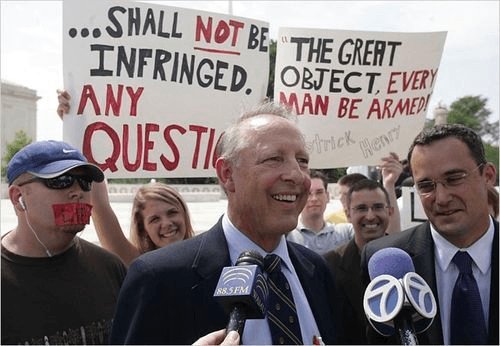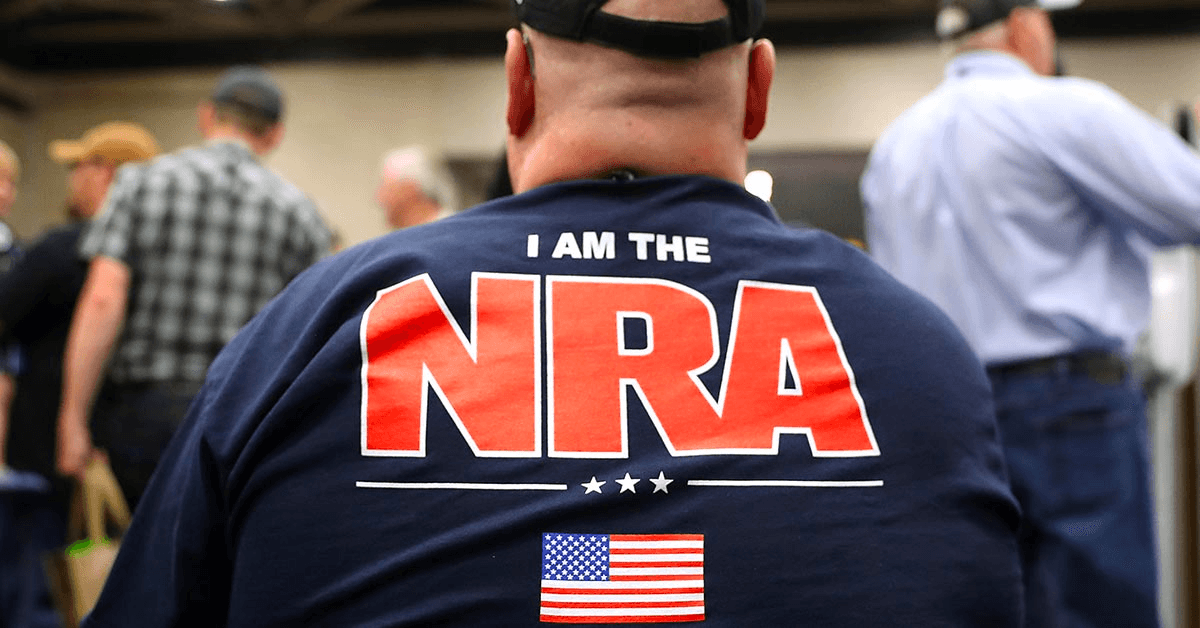District of Columbia v. Heller
In 2008, the Supreme Court significantly expanded its understanding of the Second Amendment in District of Columbia v. Heller.
In 2008, a strict D.C. gun law essentially banned handgun possession in the District, with exemptions for law enforcement officers and those with a one-year license from the police chief. Dick Heller, a special police officer in D.C., applied for a permit to keep a handgun at home, but the police chief denied his application. Heller sued the District, asking for an injunction to prevent the law’s enforcement, saying it violated his Second Amendment rights. In its 5-4 decision, the Supreme Court sided with Heller, finding the D.C. law unconstitutional.
The Court found that the Second Amendment grants an individual the right to possess a firearm, even when unconnected to service in a militia. This 2008 case was the first time the Supreme Court considered a Second Amendment case since United States v. Miller in 1939. The Court rejected the traditional 20th-century interpretation of its Miller decision that the Second Amendment granted a collective rather than individual right. The “collective right” interpretation argues that the right to bear arms extends only to an individual’s service in a militia. The case represented a significant win for the gun lobby, which had advocated for the “individual right” view for many years. In 2019, former Associate Justice John Paul Stephens penned an opinion piece for The Atlantic calling the Heller decision “the Supreme Court’s worst decision of [his] tenure.”

